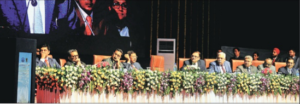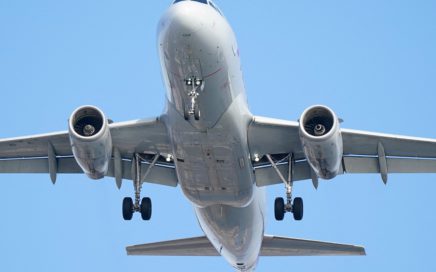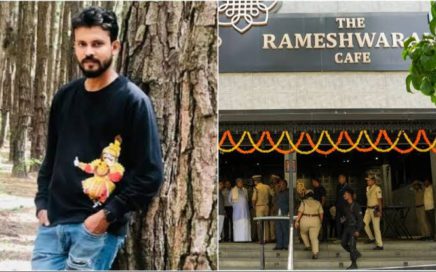
Nagpur: Chief Justice of India (CJI) Dr. Dhananjaya Y Chandrachud delivered a notable speech at the centenary celebration of the High Court Bar Association (HCBA) of Nagpur. The event, held at the High Court premises in Civil Lines, witnessed a diverse audience comprising senior and junior lawyers, as well as law students, underscoring the profound interest of the legal community in the CJI’s address.
CJI Chandrachud reiterated the fundamental principles of independence and non-partisanship within the Indian judiciary and emphasized their pivotal role in upholding the rule of law and ensuring justice. He underscored the inclusive nature of the Indian Constitution, emphasizing its aim to unite individuals from all walks of life. In a vivid illustration, he referenced the famous phrase, “the butcher, the baker, and candlestick makers,” symbolizing the broad spectrum of individuals encompassed by the Constitution.
The celebration marked a significant milestone for the HCBA of Nagpur, reflecting its enduring commitment to the legal profession and the administration of justice. The event provided a platform for legal luminaries, practitioners, and aspiring lawyers to reflect on the rich legacy of the legal fraternity in Nagpur and renew their dedication to the principles of justice and equality.
In his address, Justice Chandrachud recalled his time at the Nagpur Bench of the Bombay High Court and acknowledged the significant contributions of legal stalwarts from Nagpur to the country’s legal landscape. “Nagpur holds importance in the life of one of the founders of our republic, Bharat Ratna Dr Babasaheb Ambedkar. It is here that Babasaheb embraced Buddhism, and his final remains are enshrined in the central dome of the Deekshabhoomi stupa,” he said.
“This year marks not only the centenary year of HCBA but also the 100th year since Babasaheb began his practice. In honour of this, the Supreme Court has installed a statue of Dr Ambedkar, symbolising his guiding presence as we fulfil our constitutional duties. In a sense, a little part of Nagpur is forever a part of the Supreme Court,” he said.
Highlighting the importance of legal practice, the CJI said that Dr Ambedkar’s motivation to pursue legal practice was rooted in the independence that the legal practice provides. Legal practice was liberated from the feudal hierarchy of caste, which he fought against to mobilise public opinion. Dr Ambedkar believed that in colonial India, the legal profession alone allowed an individual to remain independent from the government and social forces.
“Dr Ambedkar valued his independence from the undemocratic colonial government and a caste-ridden society over monetary or commercial gain. This motivation to pursue law for autonomy and freedom that the profession imparts stands true even today,” the CJI stated. “The ability and responsibility of a lawyer to act without favour or fear, ill will or affection, must continue to guide us as members of the legal profession.”
Justice Chandrachud then read a judgment authored by Justice Vivian Bose, a former judge of the Supreme Court of India and a former member of HCBA, Nagpur. Justice Bose wrote in a judgment that the Constitution is not for the exclusive benefit of governments and states. It is not only for lawyers, politicians, officials, and those highly placed. It also exists for the common man, for the poor and the humble, for those who have businesses at stake, for the butchers, the bakers, and the candlestick makers.
Furthermore, the CJI said, “Let us all remember that our Constitution is an inclusive Constitution. It is intended to bring together the butcher, the baker, and the candlestick maker. Just as this building is a poem in stone, Justice Vivian Bose was a poem personified in verse as he wrote. As you carry out your responsibilities as professionals, advocates, and officials of this constitutional court, remember that your foremost duty lies towards ensuring justice and upholding the rights of every individual, including bakers, candlestick makers, and butchers,” he said.
“I must highlight the importance of having an independent bar association. The judiciary has both the time and the occasion to assert its independence and non-partisanship, a separation of power from the executive, the legislature, and vested political interests,” he said. The CJI further stressed that we must not forget the close link between the independence of the judiciary and the independence of the bar. The bar, as an institution, is essential to preserve the independence, constitutional values, and dignity of the court.
In a vibrant and argumentative democracy like ours, most individuals have political ideologies or inclinations. To quote Aristotle, “human beings are political animals.” Lawyers are no exception. However, for members of the bar, their highest loyalty must not lie with parties but with the court and constitution, he said. Judgments of constitutional courts are the culmination of rigorous processing through legal analysis and commitment to constitutional principles. But when the judgment is pronounced, it becomes public property.
“Our shoulders are broad, and we are ready to receive both praise and criticism, whether through journalistic pieces, political commentary, or on social media,” said the CJI.
Justice Bhushan Gavai, Judge Supreme Court of India; Justice Abhay Oka, Judge Supreme Court; Justice Prasanna Varale, Judge, Supreme Court of India; Justice Sharad Bobde, former Chief Justice, Supreme Court of India; Justice Devendra Kumar Upadhyay, Chief Justice of Bombay High Court; and Justice Nitin Sambre, Chief Administrative Judge, Bombay High Court, Nagpur Bench; Adv Atul Pande, President of HCBA, Nagpur were also present on the dais.
















